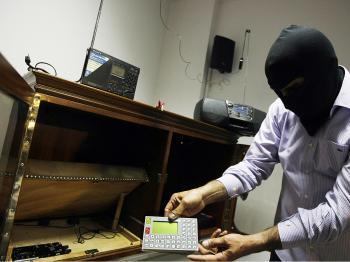Saudi Arabia is known for its strict and conservative Islamic rule; King Abdullah’s recent changes are an apparent attempt to precipitate reform.
In his first reshuffle since he assumed the throne in 2005, Abdullah assigned Noura Al Fayez, a former teacher educated in the U.S., as Deputy Education Minister, responsible for female students.
In a country where women are not allowed to drive, were only given the vote five years ago, and form only 5 percent of the country’s workforce, Al Fayez said to Arab News that her new position in the Cabinet is an honor for all Saudi women: “In the presence of a comprehensive operational team, I believe I will be able to face challenges and create positive change,” she said.
Beyond adding the first female face to the Cabinet, the King also dismissed the religious police chief, Sheikh Ibrahim Al Ghaith, who was known for his brutality. An entire group of religious scholars and their head, the country’s senior judge, Sheikh Saleh Ibn Luhaydan, were also replaced by a more moderate Sunni group. Al Luhaydan last year issued an edict stating that it was permissible to kill owners of satellite television channels broadcasting “immoral” programs, which brought international criticism of Saudi Arabia’s system of rule.
The Saudi ambassador to Lebanon, Abdul Aziz Khoja, was assigned Minister of Culture and Information. He described journalists and intellectuals as “The pillars of the Saudi media … [they] represent the shining face of the country, inside and outside the kingdom,” according to the Saudi Gazette.
Surgeon Abdullah Al Rabih, who led more than a dozen successful surgical separations of conjoined twins, was assigned Minister of Health.
The king also appointed Prince Faisal bin Abdullah, his son-in-law, as Education Minister. Faisal was reported to have been working on plans to reform education, especially after the Sep. 11 attacks, which involved 15 Saudi citizens. The event led the US to blaming the Saudi education system for creating extremists.
The reshuffle that introduced to the Cabinet a group of relatively young officials and scholars was broadly welcomed in the Saudi Press.
At the same time, Valentine’s Day, a holiday forbidden to be celebrated in Saudi Arabia, will also allowed to be celebrated this year. Saudis say it will mark the day when bold reform to the country’s ruling system began.


